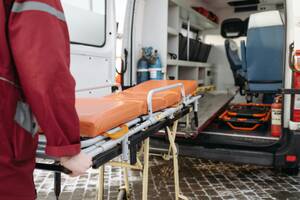Ambulance teams face high-pressure situations daily, where efficiency can make the difference between life and death. Having the right medical equipment is essential, and this includes not only the ambulance stretcher itself but also its accessories. Essential stretcher accessories ensure first responders can transport patients swiftly and safely while offering care en route to the hospital. An ambulance stretcher equipped with the necessary accessories gives comfort and stability to the patient, allows for the monitoring and treatment of patients, and assists healthcare providers in delivering emergency medical services with the precision and urgency required.
Given the unpredictable nature of emergency calls, stretcher accessories must be versatile and reliable. From oxygen tank holders for respiratory support to secure ZOLL X series mount systems for defibrillators, every additional feature needs to serve a critical function. In first responder operations, these accessories not only support patient transport but can also be integral in life-saving interventions. A stretcher with a robust set of medical equipment can dramatically improve the quality of pre-hospital care.
Key Takeaways
- Essential stretcher accessories aid in safe patient transport and care.
- The right tools allow rapid response to a spectrum of medical emergencies.
- Regular maintenance of stretcher accessories is key for operational readiness.





